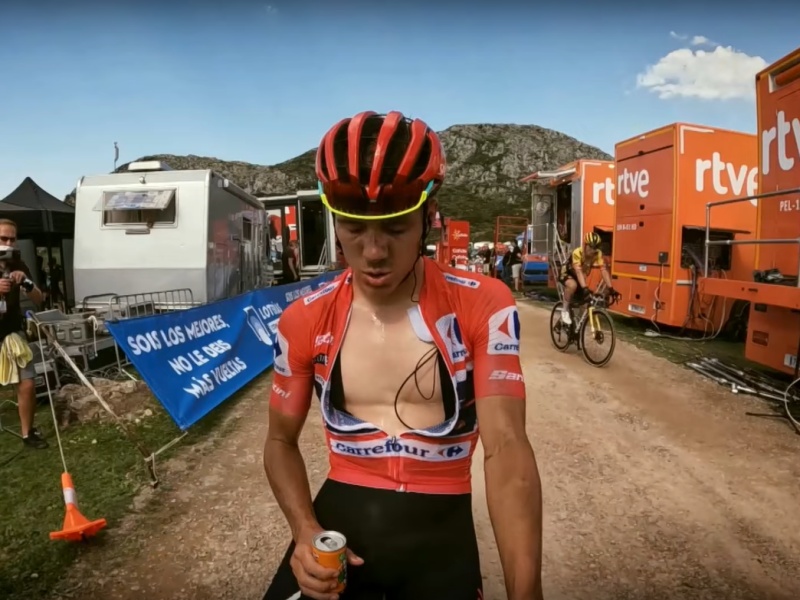
- Preview
- Week 1 recap
- Week 2 recap
- Week 3 recap
A few months after dropping the entire field at Liege-Bastogne-Liege by riding slightly took quickly for them all, young Belgian mega-hope Remco Evenepoel has carved himself a 1m12s lead in the Vuelta a Espana by deploying the same unsubtle but so far unanswerable tactic.
The leaderboard got its early shape from the team time trial on Stage 1 and a short uphill finish on Stage 4, but looking back on the week as a whole, the story revolves around the trio of mountaintop finishes on Stages 6, 8 and 9.
These brought two parallel stories. Let’s deal with the obvious one first.
The overall leader
Remco Evenepoel is only 22 but has already been living with great expectations for years after utterly dominating as a junior rider.
There’s a theory that his physical superiority at this lower level hasn’t necessarily done him any favours when it comes to tactics because he simply didn’t need to be in any way calculating. He would just ride away from everyone.
That shouldn’t be an easy feat to replicate as a pro, but it’s pretty much what he managed at Liege-Bastogne-Liege and it’s also how he took the lead on Stage 6.
When we talk about an ‘attack’ in cycling, we’re generally talking about a pretty specific act. It’s when you have a group of riders – it could just be two or three, or it could be the entire peloton – and one of them suddenly accelerates to make a gap.
The making of the gap is key. This is because of the first law of road racing: it’s easier to ride behind someone else. If you simply accelerate, it’s easier for people to follow. All you’re really doing in that situation is using a lot more energy than your rivals to travel at the same speed.
Yet this is Remco’s trademark move.
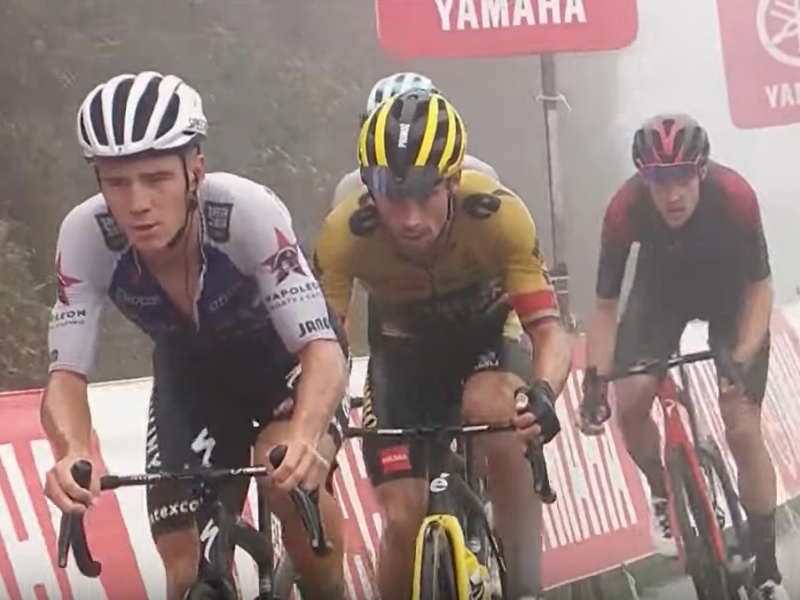
With somewhere over 8km of the final climb to go, he started riding more quickly. And over the next couple of kilometres the fast train from Aalst slowly but steadily shed almost all of its carriages.
The upper slopes were tackled with just Enric Mas for company with the Spaniard managing to lose only a second at the line.
Not entirely surprisingly Primoz Roglic doesn’t seem to be quite at his best. He lost 1m17s and ended up doing a whole load of towing himself with the vast majority of the overall contenders following him in.
Injuries limited the Slovenian’s training ahead of the race. He’ll be hoping a by-product will be extra freshness compared to his rivals that may come into play later in the race. That’s a bit of a straw-clutch though.
He stayed with Evenepoel on Stage 8 though, where the Belgian deployed a version of his go-to tactic primarily as a means to deter others from attacking. In this he was rather successful with only Roglic and Mas still with him by the summit.
Stage 9 finished with a shorter climb, but not an easier one. Les Praeres is just 3.9km long but with an average gradient of near enough 13% – classic Vuelta fare in other words.
Evenepoel’s method was working, so he stuck with it.
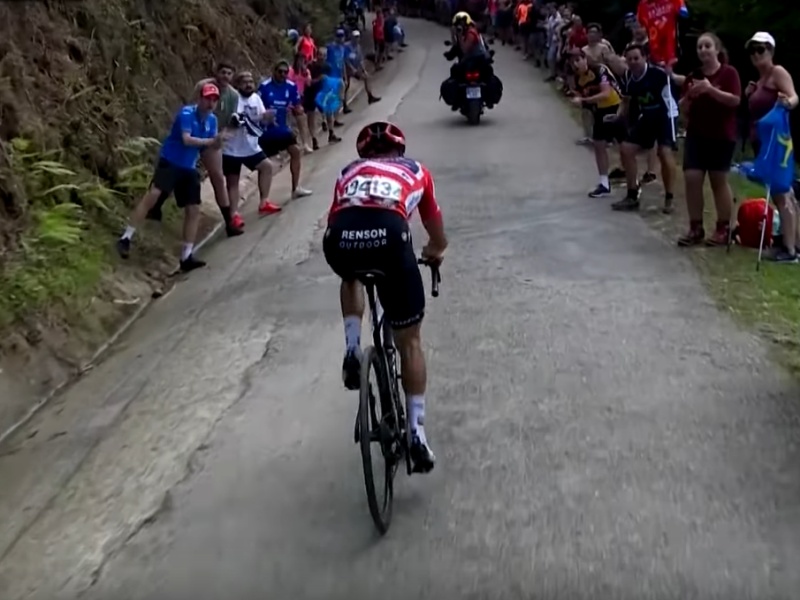
He had 44s on Mas by the line and a handful more on Roglic.
The top 10
So this is where we are. Evenepoel has a very healthy lead – but it’s also a very early lead. There’s definitely potential for fading from a man who hasn’t yet finished a three-week race, let alone won one.

The stage winner
The other big story this week was Australian rider, Jay Vine, who won two of those summit finishes – his first pro victories.
Here’s a shot of the closing metres of the first one.
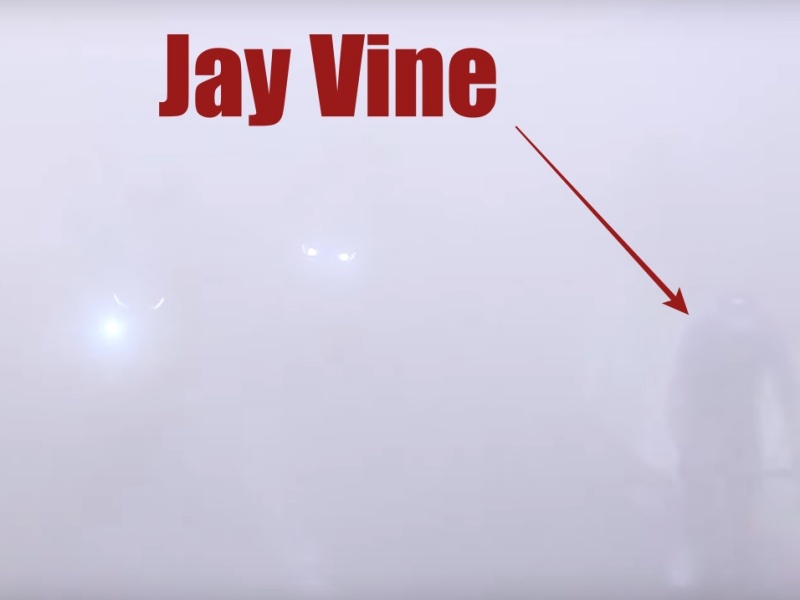
An unforgettable moment for the lad. He’ll be delighted it was so well documented.
The second one was a bit easier to see.
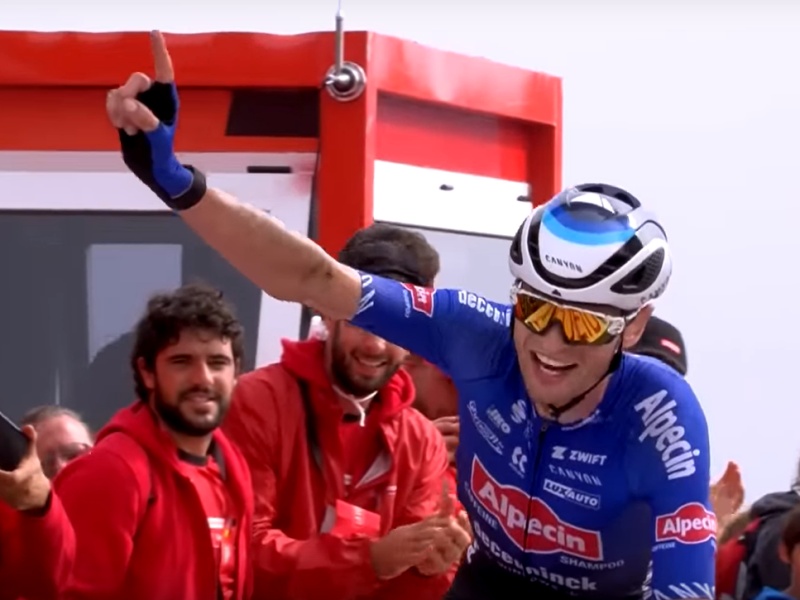
If you saw either of these stages, you’ll be well aware that Vine’s “thing” is that he won his contract through the Zwift Academy. ‘Can you believe that a Zwift person is winning in real life?’ was the general theme of the commentary.
If you don’t know Zwift, it’s basically a computer game, but one where the input comes not from a keyboard, mouse or controller, but instead from an indoor cycling trainer.
In that sense, it’s less a videogame and more a cycling lab test with graphics. It’s therefore not in the least bit surprising that someone who’s good at it should have the physical qualities to make it as a pro cyclist. Indeed it’s worth pointing out that Vine already had a pro contract when he won the Zwift Academy thing in 2020, so all it really got him was a different job with a better team.
While not traditional, Vine’s credentials are good. If anything, the question is whether he’s aimed high enough. He (presumably) deliberately lost a whole stack of time in the early stages so he’d be allowed into the breaks, which is how he won Stage 8. His Stage 6 victory however came after attacking from the favourites’ group.
He’s arguably the best climber in the race.
What’s next?
There’s a flat 30km time trial on Tuesday and then we’ve got that same Thursday, Saturday, Sunday pattern of big summit finishes.
The last one finishes at 2,500m, which is seriously bloody high; about as high as European bike races go.
I’ll aim to do the next recap on the rest day (Monday) or just after. You can sign up for it here, if you haven’t already.
Leave a Reply